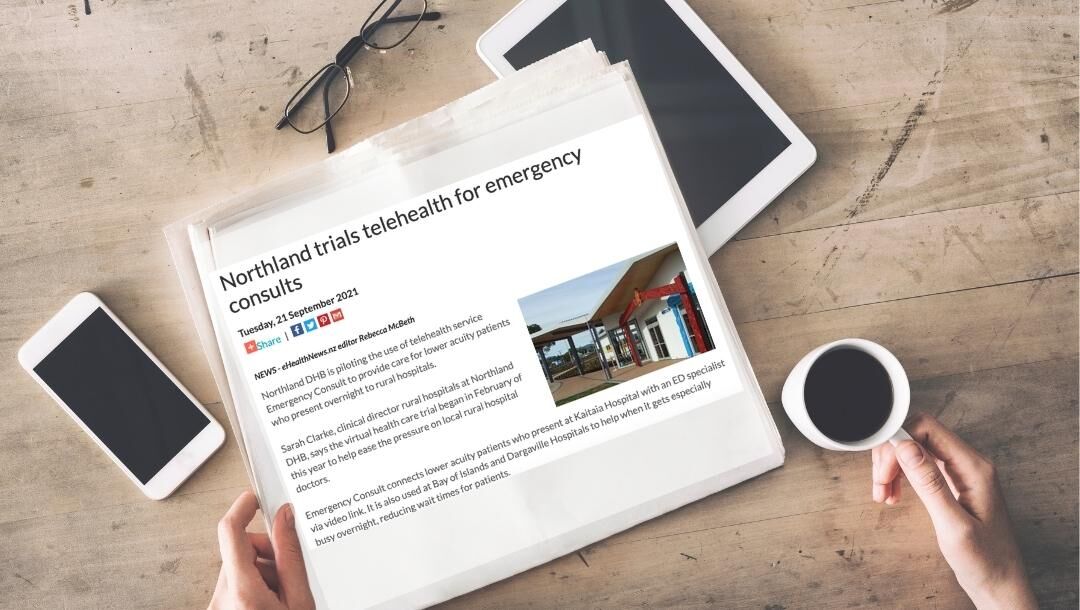 26 Sep 2021
26 Sep 2021We’re thoroughly enjoying our work supporting rural and remote clinicians. And hearing comments like “It’s the best thing that could have happened to a small rural hospital” makes it that much more satisfying.
Please see the article published in Health Informatics New Zealand (HiNZ) last week that describes the work we’re doing with Northland DHB: http://ow.ly/wKy950GgINE
Northland DHB is piloting the use of telehealth service Emergency Consult to provide care for lower acuity patients who present overnight to rural hospitals.
Sarah Clarke, clinical director rural hospitals at Northland DHB, says the virtual health care trial began in February of this year to help ease the pressure on local rural hospital doctors.
Emergency Consult connects lower acuity patients who present at Kaitaia Hospital with an ED specialist via video link. It is also used at Bay of Islands and Dargaville Hospitals to help when it gets especially busy overnight, reducing wait times for patients.
Data collected over eight weeks showed that of 224 presentations overnight, 40 percent were seen via video consult and of those, 73 percent were treated and discharged.
Patients speak directly to an emergency doctor, supported by a nurse, and more than 80 percent of patients surveyed felt positively about the interaction, with 100 percent reporting that their needs were met.
Rural areas struggle to recruit and retain medical staff. Clarke says that a change in medical working patterns meant the hospital was getting busier at night, roughly doubling the number of call-outs hospital doctors were experiencing while on-call and severely limiting any opportunity to sleep.
Kaitaia Hospital uses an on-call system, rather than a shift-based roster, and having to change that would impact on workflow and continuity on the wards, as well as on its ability to recruit, says Clarke.
“It’s made a life-changing difference to our ability to continue running the model that we would prefer in our hospital and not be forced into a different pattern of working.”
She says there was initially a lot of hesitancy amongst medical staff who thought they would still have to deal with overnight patients when they arrived on shift in the morning.
However, the reality is that most are treated and discharged via Emergency Consult.
Associate clinical nurse manager Narelle Stayte says nurses working nightshift previously felt isolated, but having specialists available instantly via video conference has been transformational.
“Within two weeks they were definitely part of our team, treated as colleagues and respected by all our nurses,” she says.
“Nurses believe having this is invaluable and it takes the stress off our doctors, allowing them to focus on higher acuity patients.
“It’s the best thing that could have happened to a small rural hospital.”
